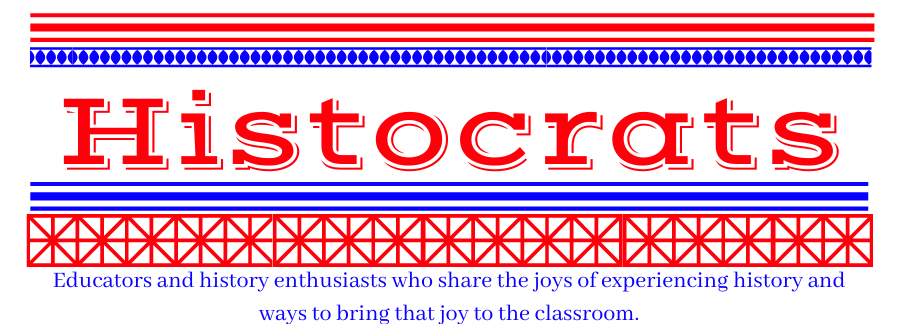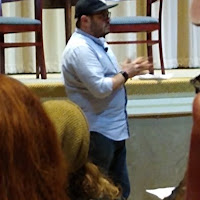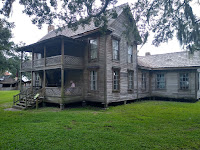When you are in a new city, and you're a history buff, how do you get your history? At ground level, of course. Take a walking tour; learn history, meet new people, and get some exercise, all at the same time.
Walking tours can be found in every city. How do you find one? Google it. Check to see if the city has a visitors bureau location or webpage. Discount sites like Groupon, Local Flavor, and Travelzoo also list tours. Tripadvisor is a great source, too. If you're staying in an Airbnb, you can find experiences listed. If you're staying in a hotel, ask the concierge or look for brochures in the lobby. Also check with local museums. The Tampa Bay History Center runs several walking tours, and we've done two so far.
My wife and I love doing walking history tours and walking food tours in cities that we visit. On a walking tour, you're part of a small group of interested and interesting people, and you're guided by a person who is excited to share his or her town's history with you. On a food tour, you have the added benefit of tasting some great food at several restaurant stops along the way.
Tours are usually 2-3 hours long, easy walking, with lots of steps. Sometimes your guide might be in costume or in character, like the great Freedom Trail tour we took in Boston, when we had "Prince Hall" leading the way. Sometimes you just get an interesting local character, like Larry from Holy City Tours in Charleston, who told us all about the "naughty women" of Charleston's history.
  |
| Larry, Charleston Prince Hall, Boston |
We have done some great food tours on our travels, and I'm already looking at a few offerings for future tours. In Ybor City (old Tampa), we had the best Cuban sandwich ever and saw cigars being made by hand like they were made there over a hundred years ago. In Philadelphia, we sampled a great Philly cheese steak (from a mom and pop neighborhood place, not one of the tourist traps), and we found out what a tomato pie was (basically a cheese pizza, sorry Philadelphians).
If you're not a foodie, or even if you're not a huge history buff, there is probably a walking tour in every city that will strike your fancy. There are ghost tours, murder tours, scandal tours, etc. Go ahead and check it out. I bet your own city has a tour or two, and you can learn some neat local history, and when you travel, look for tours in your destination city. They're fun and educational, and they give you great ideas for places to explore and places to eat at on your own.















































